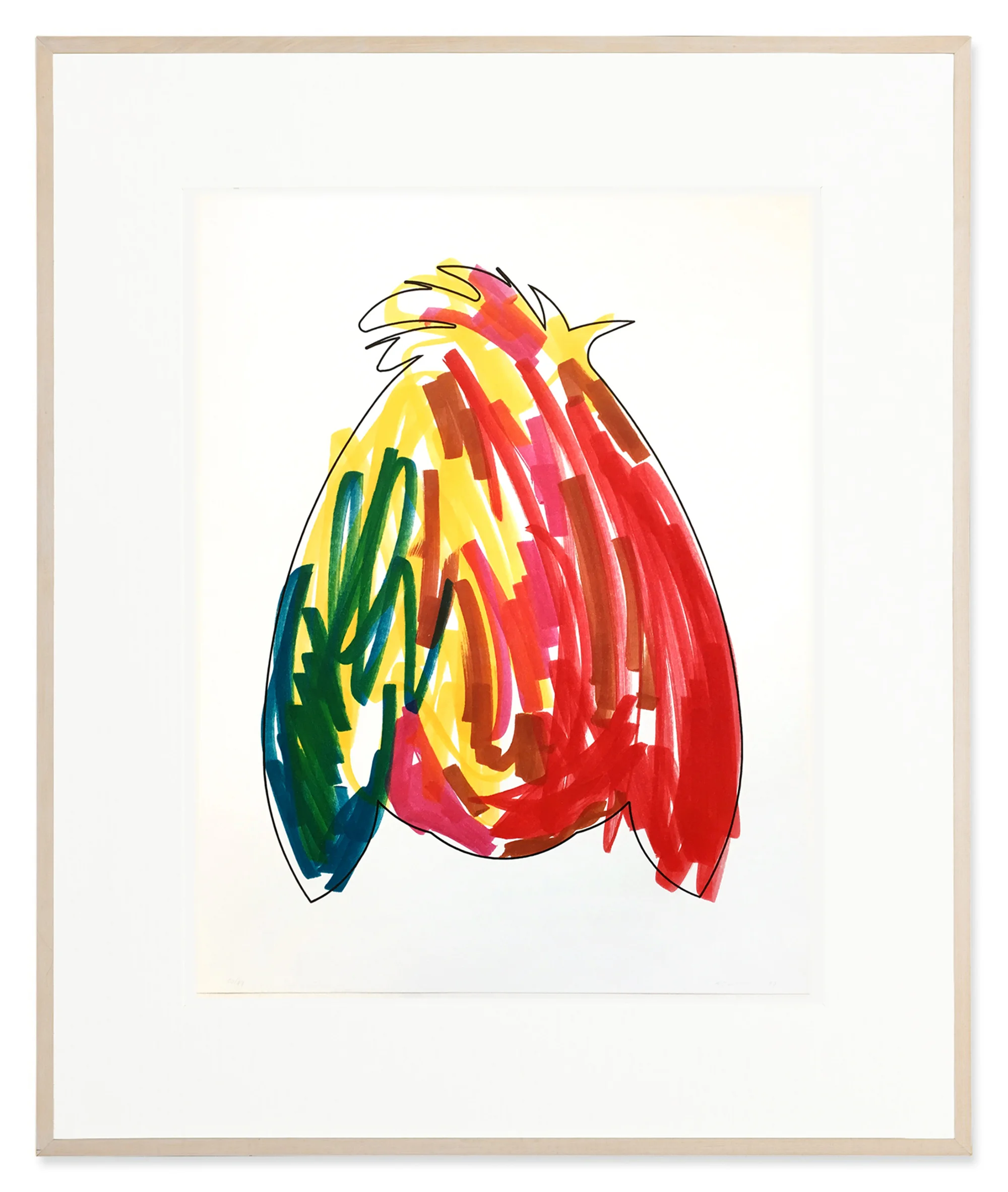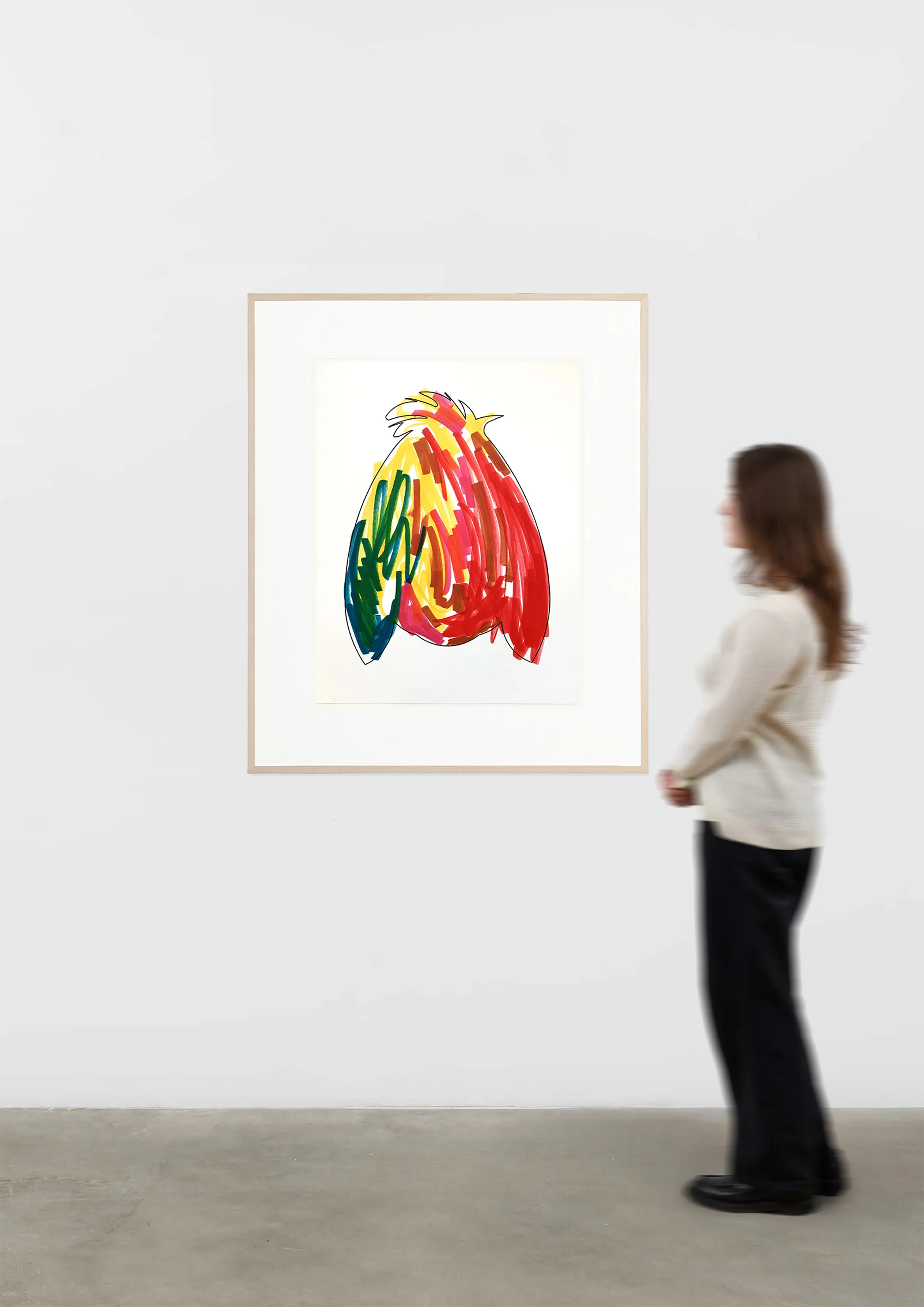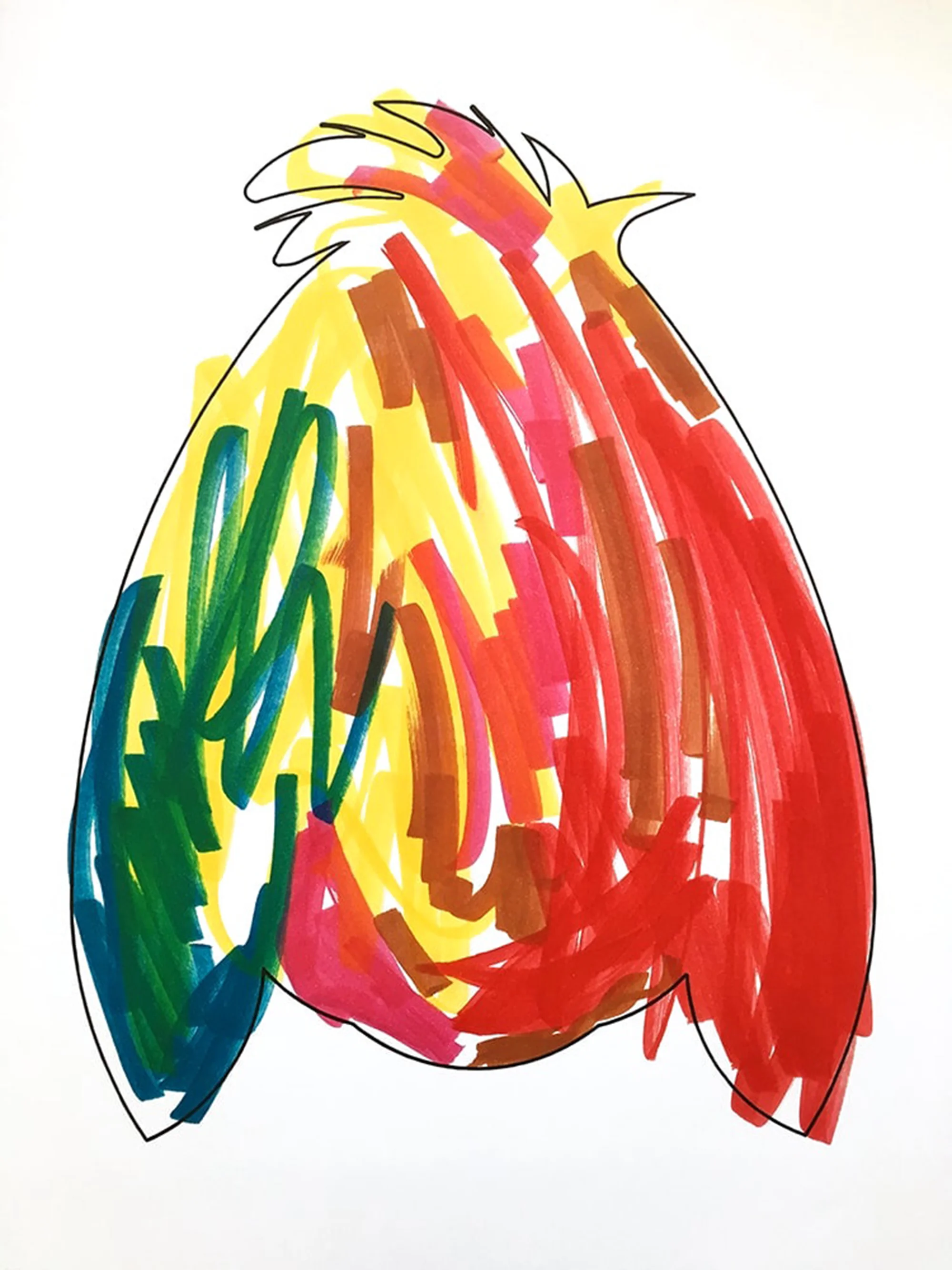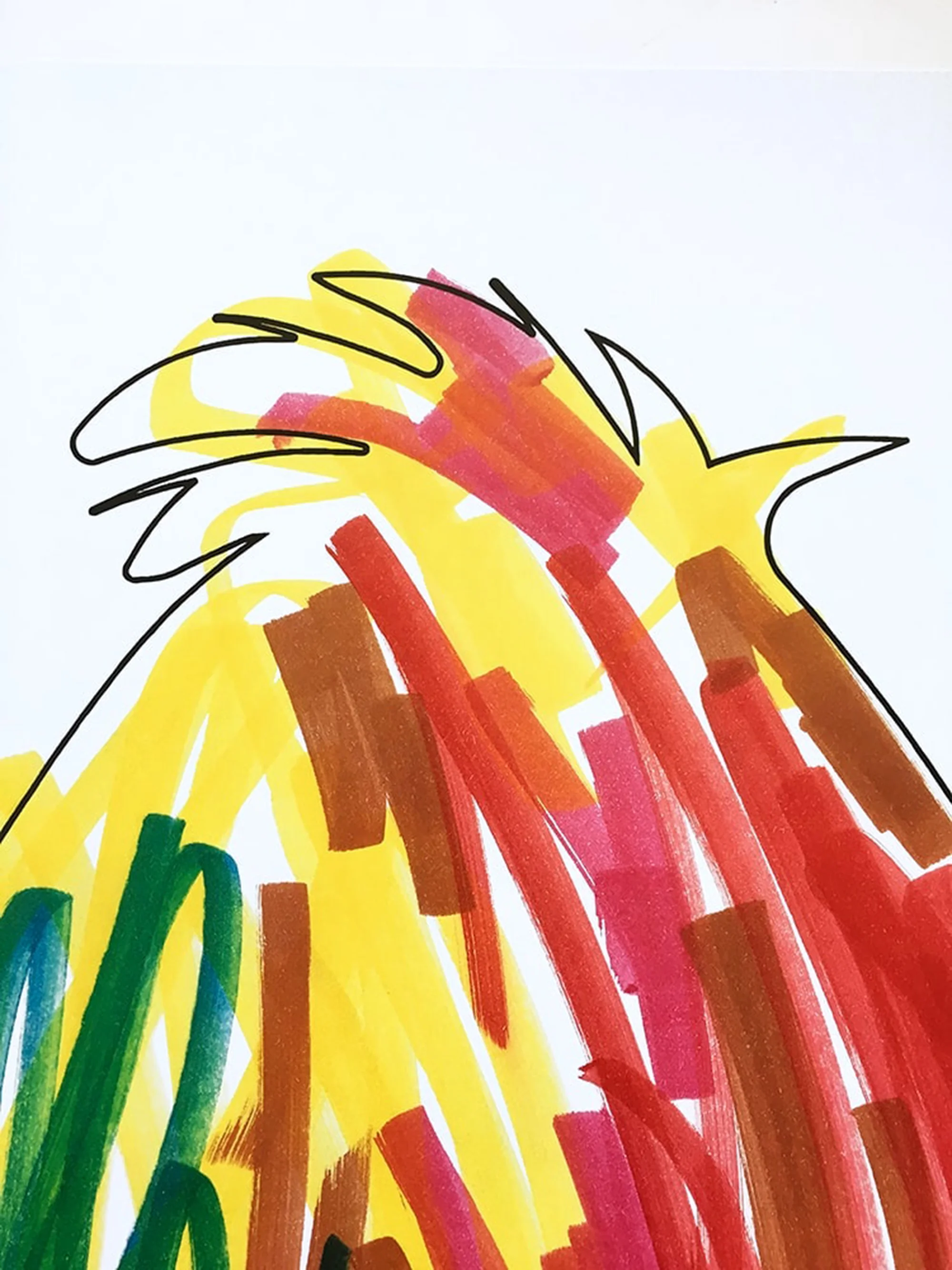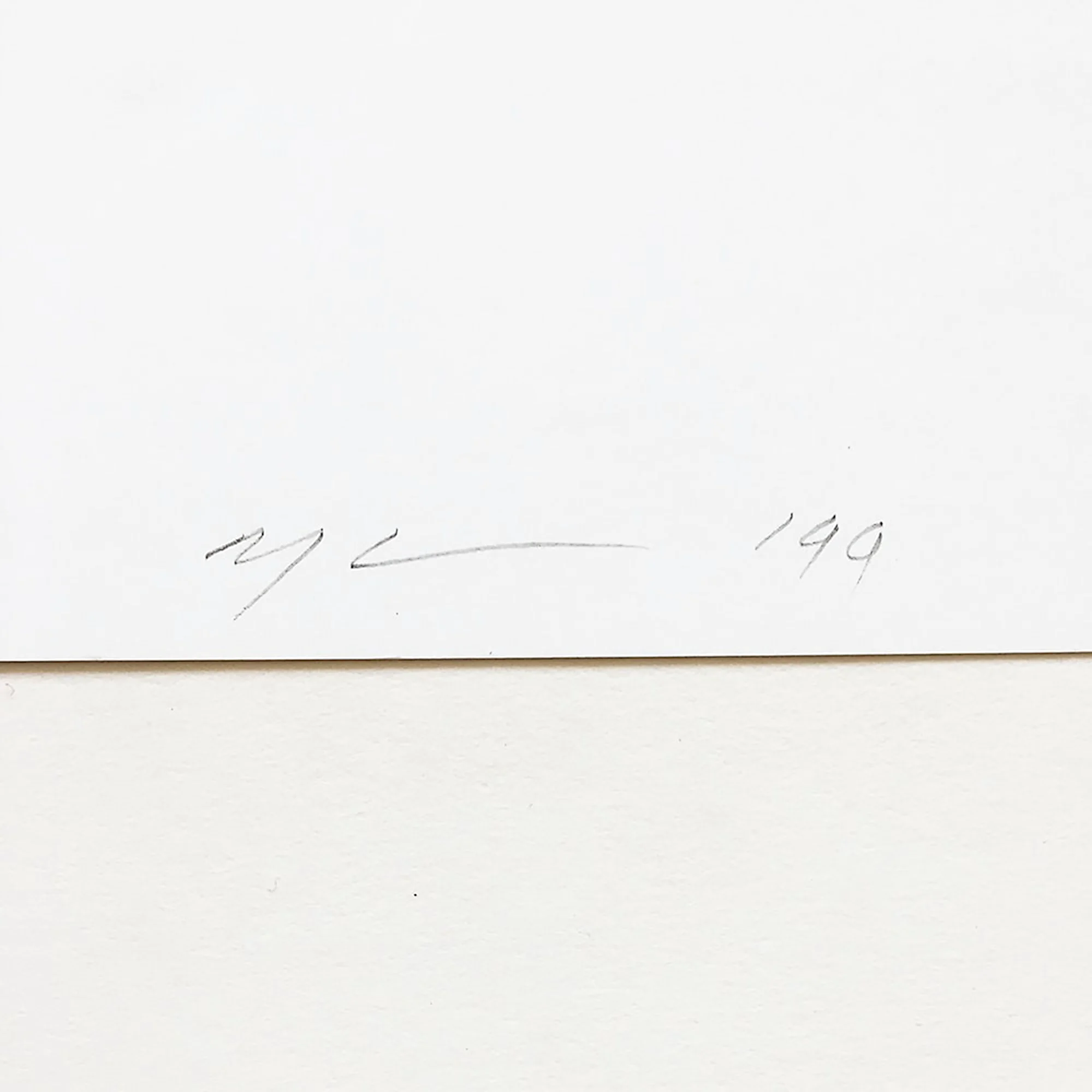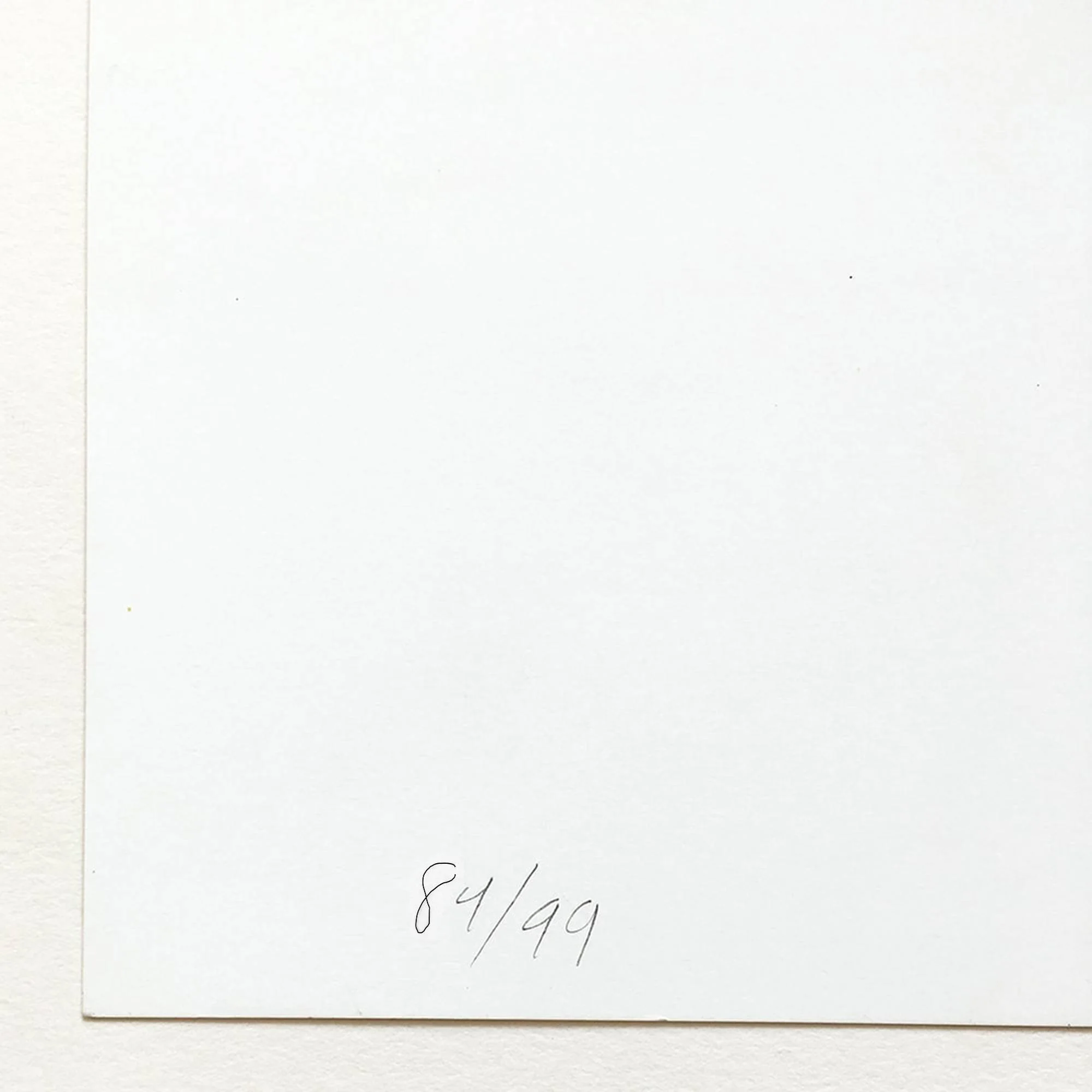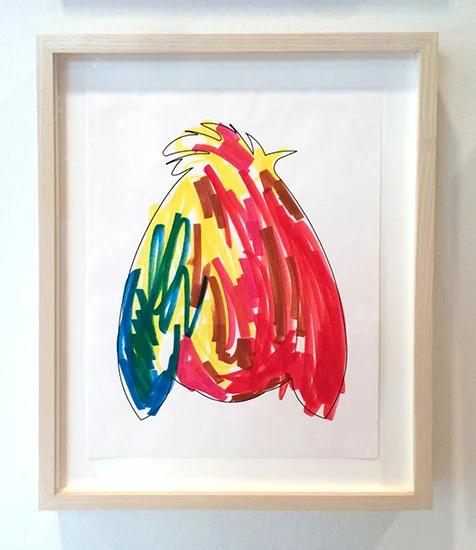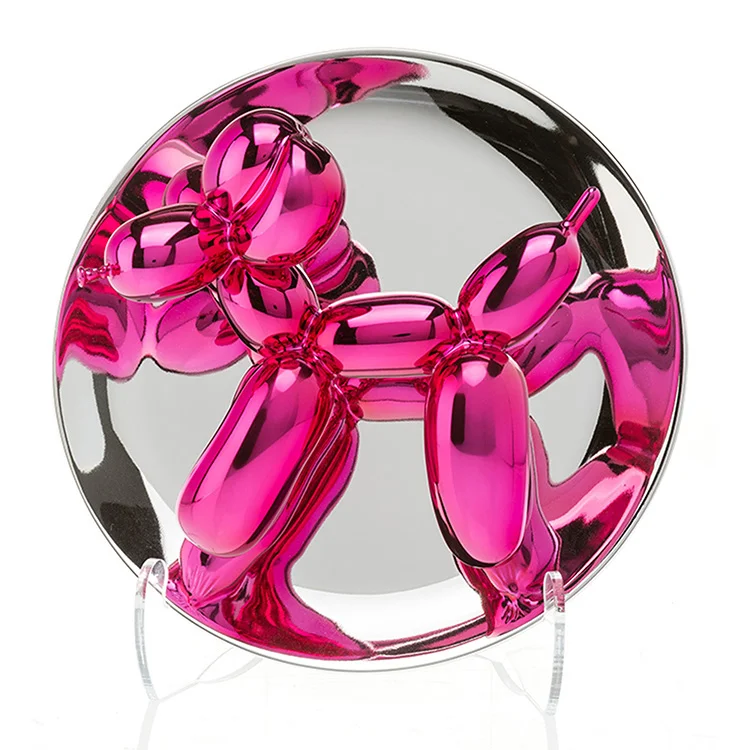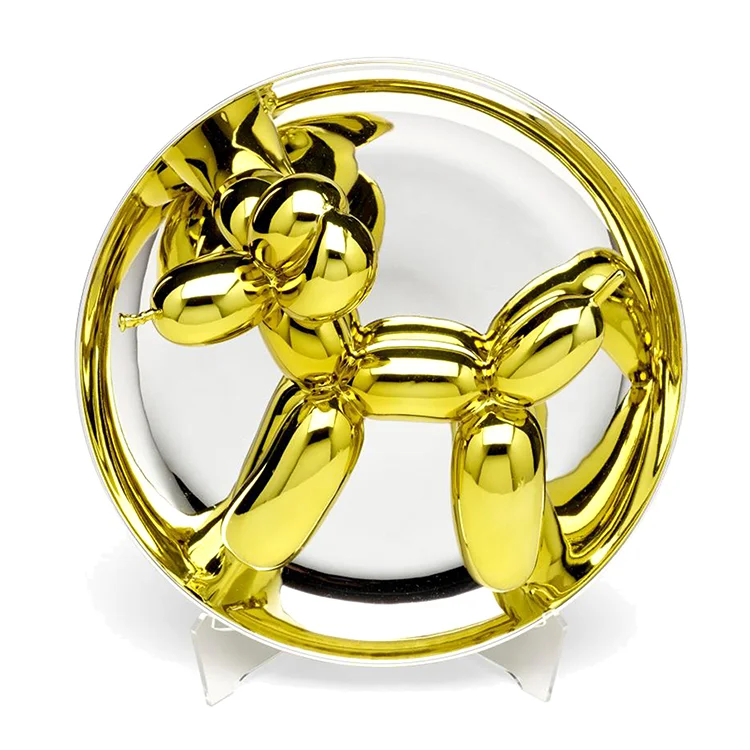Jeff Koons
Donkey, 1999
Color Grano lithograph on paper
paper: 36 x 28 inches
frame: 49 x 41.25 inches
edition of 99 + 20 AP's
signed and dated "99" by Jeff Koons in pencil lower right recto
numbered by the artist lower left recto
Pristine condition, floated archival blonde wood frame with UV plexiglass
paper: 36 x 28 inches
frame: 49 x 41.25 inches
edition of 99 + 20 AP's
signed and dated "99" by Jeff Koons in pencil lower right recto
numbered by the artist lower left recto
Pristine condition, floated archival blonde wood frame with UV plexiglass
Literature
Eckhard Schneider, Jeff Koons, Bregenz: Kunsthaus Bregenz, 2001, Text by Alison Gingeras, another impression reproduced in color page 119.
Jorg Schellman, ed., Forty Are Better Than One, New York: Edition Schellmann, 2009, pages 195, 413, another impression reproduced in color.
Exhibited
Rockford, Illinois, Rockford Art Museum, Technicolor Constellations: Tales from the Permanent Collection, May 11, 2021 – September 23, 2021, another impression
New York, The Whitney Museum of American Art, Jeff Koons: A Retrospective, June 27, 2014- October 19, 2014, another impression
